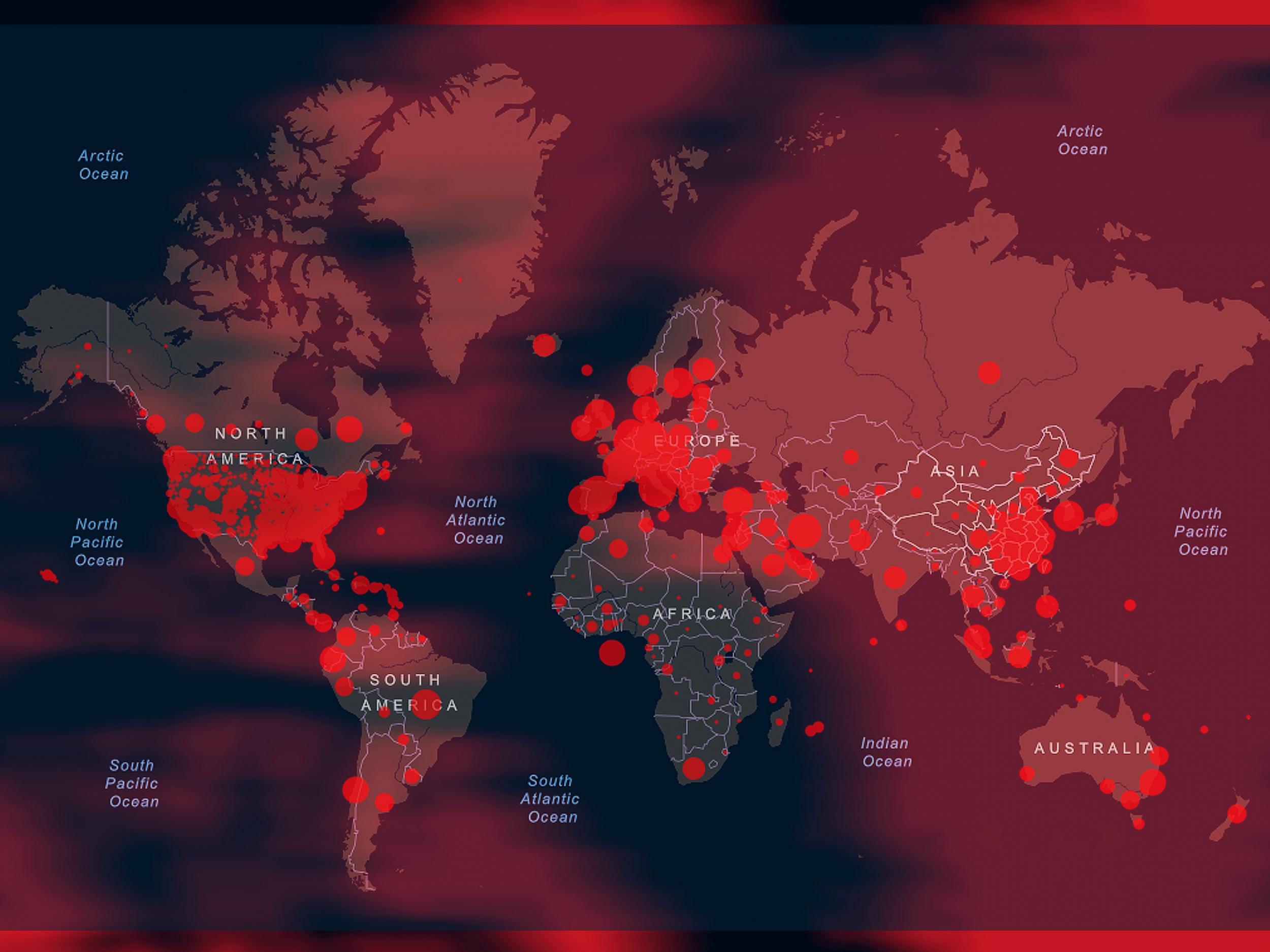Coronavirus at 10 million: A visual guide to how pandemic spread around the world
As global Covid-19 cases pass 10 million, The Independent charts how it spread to nearly every country on Earth

Your support helps us to tell the story
From reproductive rights to climate change to Big Tech, The Independent is on the ground when the story is developing. Whether it's investigating the financials of Elon Musk's pro-Trump PAC or producing our latest documentary, 'The A Word', which shines a light on the American women fighting for reproductive rights, we know how important it is to parse out the facts from the messaging.
At such a critical moment in US history, we need reporters on the ground. Your donation allows us to keep sending journalists to speak to both sides of the story.
The Independent is trusted by Americans across the entire political spectrum. And unlike many other quality news outlets, we choose not to lock Americans out of our reporting and analysis with paywalls. We believe quality journalism should be available to everyone, paid for by those who can afford it.
Your support makes all the difference.Less than six months after the first recorded case of Covid-19, the number of confirmed global infections has now passed 10 million.
The latest milestone comes amid a major surge in new coronavirus cases around the world, as new outbreaks emerge across South America and the Middle East.
It took five months for the number of cases worldwide to reach five million, but just over a month for that figure to double.
After emerging from China at the end of 2019, the deadly virus at first appeared to be confined to the Hubei region.The city of Wuhan was placed under lockdown in an attempt to contain its spread, meaning no one was allowed to leave or enter without government permission.
But within weeks, outbreaks began to emerge in nearby countries, including South Korea, Japan and Singapore.
Within a month the novel coronavirus had spread to more than a dozen countries. By mid March, it had reached the majority of countries on Earth and the World Health Organisation officially declared it a pandemic.
Infection rates in some countries has levelled off in recent weeks – most notably in China, Italy and other countries that accounted for the majority of new cases in the early stages of its spread.
The number of new cases globally, however, continues to rise at a significant rate.
June has been the worst month so far, in terms of the number of new cases recorded around the world.
Official figures only count medically confirmed cases, so the actual number of cases is estimated to be vastly greater.
The United States is by far the worst hit country, with more than 2.5 million cases and nearly 130,000 deaths.
The UK was the second worst affected country in May, but has since been overtaken by Brazil, Russia and India.
The number of total deaths resulting from the pandemic also passed a milestone this weekend, with more than half a million people around the world now dead as a result of the virus.
As new cases continue to surge, the daily number of new deaths appears to have levelled off in recent weeks.
This may be because hospitals and medical facilities are now better prepared to deal with coronavirus cases, though the death toll is not likely to slow completely until cases drop significantly, or an effective treatment or vaccine is discovered.
Subscribe to Independent Premium to bookmark this article
Want to bookmark your favourite articles and stories to read or reference later? Start your Independent Premium subscription today.
Join our commenting forum
Join thought-provoking conversations, follow other Independent readers and see their replies
Comments